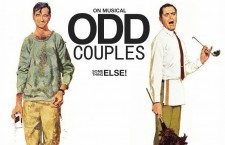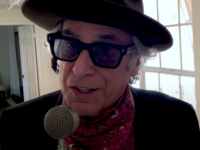The Eagles have been rightly praised for their canny combining of Glenn Frey’s city-slicker R&B with Don Henley’s country-fried rockabilly. Fans responded by sending every one of their albums to platinum status, including the 16-times smash Hotel California in 1976 and its seven-times platinum follow ups The Long Run and Long Road Out of Eden, from 1979 and 2007 respectively.
That said, some of their work simply can’t be received with the best of our love. Over time, the Eagles seemed to settle into imitating their past successes, even as they slowly erased much of their rootsier early sound — not to mention Bernie Leadon. Then there was Henley’s growing voice in the band, if only because he’s always had a tendency toward pedantic, blissfully unaware fingerpointing.
Which compelled us to start a song list of the five worst offenders.
In doing this, we stayed away from 1973’s country-rock concept album Desperado (because, despite its rather dubious metaphor of filthy-rich-recording-artists-as-old-West-rebels and a skimpy song list that includes three different versions of “Doolin-Dalton,” we still appreciate the band’s early conceptual ambitions) as well as disasters recorded away from the main band itself like 1983’s “Johnny Can’t Read” from Henley (which cynically blamed the kids for illiteracy — not the teachers, parents or the system). After all, if we started including solo missteps, this thing would quickly fill up with junk like Timothy B. Schmit’s “Boys Night Out” and most anything off Joe Walsh’s 1987 bomb Got Any Gum? Put another way, we never want to hear the whorehouse sax on Frey’s “You Belong to the City” again, much less dissect that once-inescapable 1984 single in prose.
So, those are the rules. Can you go the distance? We’ll find out! …
“DISCO STRANGLER” (THE LONG RUN, 1979): Co-credited to Glenn Frey, Don Henley and Don Felder, this one sounds all Henley — dour, almost biblically judgmental … only this time with a disco bass line! As Henley uses his gravelly tenor to once again skewer people who would dare go out to have a good time and maybe meet someone — even as he screwed everything that moved — this humorless, painfully obvious theme (a killer on the dance floor!) can only settle into an unmusical ever-revolving riff. “Disco Strangler,” I fear, would have driven Eagles fans’ to their own murderous deeds, if it had not mercifully begun to fade at about the 2:30 mark.
“I WISH YOU PEACE” (ONE OF THESE NIGHTS, 1975): Away from the Eagles, Bernie Leadon has been a member of Gram Parsons’ Flying Burrito Brothers and of the Nitty Gritty Dirt Band. So you might have expected one of his last moments with the Eagles to be representative of that history as a bluegrass-inflected multi-instrumentalist. Instead, however, we have Leadon sharing writing duties with his live-in girlfriend Patti Davis — whose dad, future president Ronald Reagan, had all but disowned her for co-habitating as an unmarried couple — on this slow-death dirge. With lyrics that were alternately mawkish and child-like in their obviousness (“I wish you hope when things are going bad, kind words when times are sad”), is it any surprise that this song ends with love “growing,” then “flowing” and then (yes) “glowing”? Henley, and he was being kind, once called this “smarmy cocktail music.” Unsurprisingly, One of These Days was the final Eagles album for the now thoroughly morose Leadon, who was the last to join the original band lineup and also the first to leave.
“FRAIL GRASP ON THE BIG PICTURE” (LONG ROAD OUT OF EDEN, 2007): I know the length of time it took the Eagles to follow up Hell Freezes Over with this long-awaited studio release almost matches the band’s initial layoff between 1980-94, but did they have to sound so dated on the second disc? While the first side neatly repurposed their initial sound, the Eagles — now a four piece, with Don Felder having been jettisoned, too — mucked it all up later by stirring in many of the best-forgotten elements (OK, let’s just say it: synths) from their respective 1980s-era solo careers. Here, they add to that a dreary second rate-Steely Dan groove and this heaping helping of Henley’s world-weary condescension. “Frail Grasp” could have been straight out of a lost session, or a parody, of any of his solo projects — with sleek keyboards from Building the Perfect Beast and a media-hating lyric from I Can’t Stand Still. If there was any lingering doubt that Henley’s completely taken over the band — noting, of course, that Frey only had two solo lead vocals on the Eagles’ final pair of 1970s recordings — then this tune was the definitive proof.
“PRETTY MAIDS ALL IN A ROW” (HOTEL CALIFORNIA, 1976): Here we have Joe Walsh, the inveterate party guy (and one of the only people, it seemed, who could lighten up this increasingly over-serious group) for some reason attempting to replicate Henley’s insufferable moralizing — or, at the very least, his dreary habit of indulging never-was nostalgia. Don’t come looking for “Life’s Been Good.” More like “Life’s Passed Me By.” And by completely bumming out Joe, “Pretty Maids” did more than the title track ever could to convey the coke-addled hellscape that Los Angeles had become for these guys. Walsh — Joe Walsh, for chrissakes! — had been reduced to a sentimental hand-wringer.
“TEENAGE JAIL” (THE LONG RUN, 1979): Another dud from an album that took nearly two years to complete, though tracks like this leave you wondering how in the world that could be so. Irritating musically, unfocused lyrically, and featuring a squiggly synthesizer solo (!) from Glenn Frey, this somehow ended up as the B-side to his galloping charttopper “Heartache Tonight” — which is the definition of Eagles yin and Eagles yang. It’s still difficult to believe that J.D. Souther — the country-rock legend who’d helped compose signature previous songs like “Best of My Love,” “Victim of Love,” “Heartache Tonight” and “New Kid in Town” for the band — was involved with this ploddingly flaccid throwaway. Unfortunately, as noted, it wasn’t the only one on The Long Run. Even Henley copped to it, admitting once: “At that point, we were just saying the hell with it. We were so miserable making that album that it actually got to be funny at one point.” This was not that point.
- How Deep Cuts on ‘Music From Big Pink’ Underscore the Band’s Triumph - July 31, 2023
- How ‘Islands’ Signaled the Sad End of the Band’s Five-Man Edition - March 15, 2022
- The Band’s ‘Christmas Must Be Tonight’ Remains an Unjustly Overlooked Holiday Classic - December 25, 2016



